Knowledge Management Portal
The IFAD funded SKiM Knowledge Management Portal, is a beacon of publications, news, data and information coming from research for development organizations, academia, government bodies, national agricultural research systems and extensionists across the globe. The Portal is built to enhance the outreach of the scientific and organizational knowledge aggregated, fostering partnership building and information sharing across users and institutions, strengthening knowledge management and providing the basis for more advanced knowledge visualization (OpenRXV powered SKiM Explorer ).
.jpg)
National Institute of Agronomic Research Morocco - INRA Morocco
Morocco, Rabat
L’Institut National de la Recherche Agronomique "INRA" a pour mission d’entreprendre les recherches pour le développement agricole. C'est un établissement public dont les origines remontent à 1914 avec la création des premiers services de recherche agricole officiel. Il a connu dernièrement une réorganisation structurelle visant la modernisation de son processus de gestion.
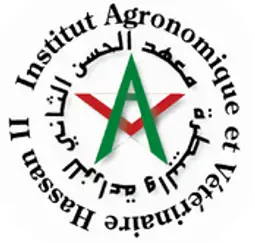
Institute of Agronomy and Veterinary Hassan II - IAV HASSAN II
Morocco, Rabat
Centre polytechnique d’expertise multidisciplinaire, l’IAV assure la formation initiale et continue des spécialistes en sciences et technologies du vivant et de la terre (Ingénieurs, Docteurs Vétérinaires et Docteurs ès sciences Agronomiques).
Il contribue activement à l’effort de modernisation de l’agriculture à travers la conduite de programmes de recherches novatrices répondant aux attentes et aux besoins d’un monde agricole en perpétuelle évolution.
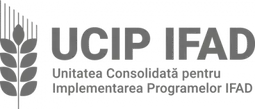
Consolidated IFAD Program Implementation Unit
Republic of Moldova, Chisinau
IFAD Consolidated Programme Implementation Unit ( CPIU IFAD) was created by the Government of the Republic of Moldova for the implementation of IFAD programmes, after the accession of the Republic of Moldova to the International Agricultural Development Fund in 1996.
The components of the IFAD programs shall be implemented in accordance with the procedures established and approved by the IFAD in agreement with the Government of the Republic of Moldova.
CPIU IFAD shall be responsible for the management, implementation, and monitoring of the activities of the programs as well as the coordination of activities with the institutions and organizations participating in the implementation of the programs.
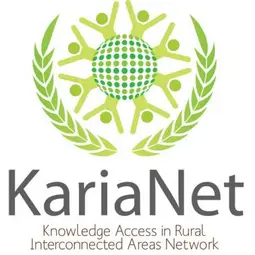
Knowledge Access in Rural Interconnected Areas Network - KariaNet
Lebanon, Beirut
KariaNet was founded by the International Fund for Agricultural Development (IFAD) and the International Development Research Centre (IDRC) in 2005 to enhance the effectiveness of development projects and programs that serve the rural poor. KariaNet I (2005-2008) worked with 10 IFAD funded projects in 5 countries and was managed jointly by IDRC and IFAD. The second phase KariaNet II (2010-2013) worked over the entire MENA countries and had as “main clients” the IFAD and IDRC funded projects in the region.
A third phase KariaNet III has been devolved to the Environment and Sustainable Development Unit (ESDU) of the American University of Beirut in February 2013 and is present in ten countries of the MENA.
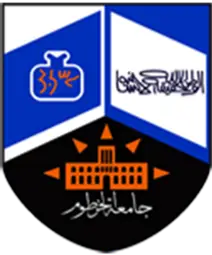
University of Khartoum - UofK
Sudan, Khartoum
History
The roots of the University of Khartoum (U of K) go back to 1898 when Lord Kitchener of Khartoum proposed founding a college in memory of General Gordon. Funds for the proposed college were raised by private subscription, and the plans for the building were drawn by the Khedive's architect, Fabricus Pasha.
The new college, named the Gordon Memorial College, was officially opened in 1902, although it was not until 1903 that the buildings were completed and the first batch of primary level students were admitted. The College however, was never intended to be solely a primary school. A secondary stratum was added in 1905 for the purpose of training assistant engineers and land surveyors, and in 1906 a four year course for the training of primary school teachers was established.
In 1905 Sir Henry Wellcome donated a fully equipped laboratory for bacteriological analysis, thus began the fruitful association between Khartoum and the Welcome Research Laboratories. In 1924, the College developed into a vocational secondary school concentrating on teaching the following disciplines: Sharia, Engineering, Teachers' Training, Clerical Work, Accounting and Science. In the same year Kitchener School of Medicine was established. The year 1936 witnessed the beginning of higher education in the Sudan with the establishment of the School of Law. By 1940 the College included schools of Agriculture, Arts, Law, Science, Engineering and Veterinary Science. Each School was attached to the government department in which the graduates would be expected to work.
In January 1945, all these schools were brought under one administration in a special arrangement with the University of London. The College was upgraded in 1951 to become Khartoum University College. In the same year Kitchener School of Medicine was incorporated in the University College. The University of London set the examinations and awarded the degrees. The outstanding students were awarded bachelor degrees from the University of London and the rest obtained the College diplomas. The present University of Khartoum is the result of the natural transformation of the University College of Khartoum when the country became independent in 1956. The bill giving full University status to the College was passed by Parliament on 24th July 1956, since then, the University witnessed considerable expansion.

Procasur Corporation - Procasur
Chile, Santiago
We are a global organisation specialised in knowledge management for rural innovation that for more than 20 years has been working to improve the performance of development policies, programmes and projects that improve the economic, social and environmental lives of rural people.
Through partnerships with governments, international cooperation institutions, rural organisations and the private sector, we harvest low-cost solutions, based on the know-how of rural talents and the assets of their territories, that enable more rural families, women and youth to empower, adopt and scale solutions in their own space and time, taking better advantage of their economic and territorial opportunities to generate inclusive and sustainable rural livelihoods.
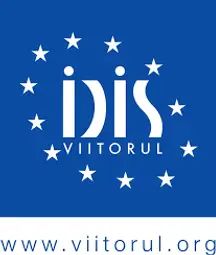
Institute for Development and Social Initiatives Viitorul - IDIS Viitorul
Republic of Moldova, Chisinau
IDIS „Viitorul” este un think tank independent, înființat în 1993. În calitate de think tank independent, IDIS combină cercetarea socială, politică și economică cu componente solide de advocacy. Instituția realizează cercetări aplicate de monitorizare pe mai multe domenii: economie, politica socială, politicile UE, dezvoltarea regională, dar și riscurile de securitate și de politică externă. De asemenea, organizează evenimente publice cu o prezență activă în mass-media.
Partners
Powered by
Funded by







